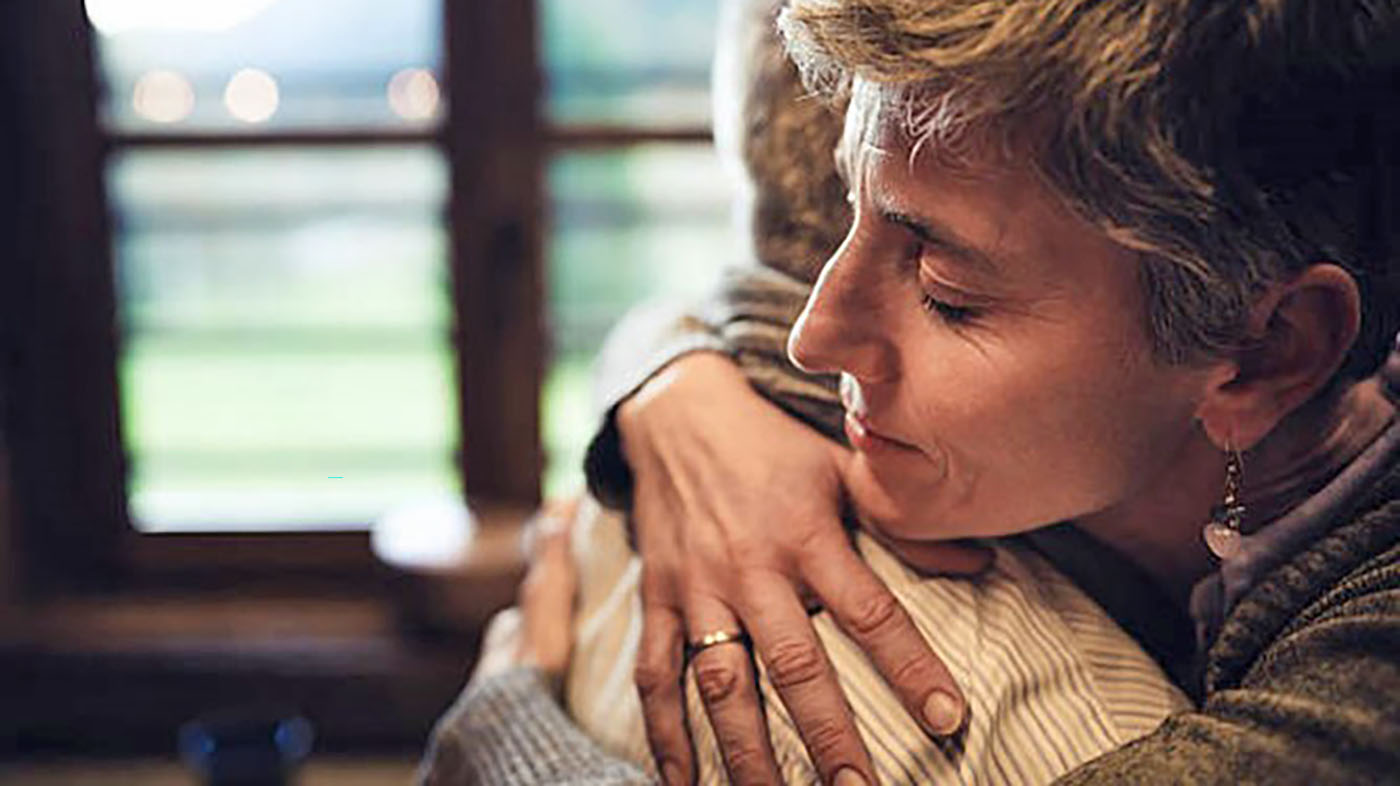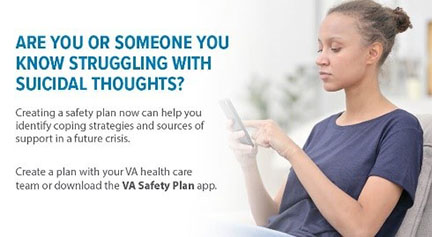Suicide has no single cause and no one approach can end it, but prevention is possible, especially when women Veterans find support before a crisis happens.
Women Veterans may have unique experiences related to military service. Their health and wellbeing and exposure to trauma can increase the risk of suicide. Some also face medical and social issues that affect relationships and quality of life.
Military service can lead to readjustment issues, posttraumatic stress disorder (PTSD), trouble sleeping or even physical injury. Additionally, reproductive health conditions that women Veterans sometimes face may take a toll on their mental health.
VA is committed to offering a growing range of resources and a network of support for all women Veterans, including those who do not and may never seek care with VA.
Connecting women Veterans to counseling and services
Whether it’s mental health care or treatment for chronic pain or other health concerns, VA can provide personalized, gender-tailored care to help women Veterans. Each VA medical center also has a suicide prevention coordinator to connect women Veterans to counseling and services.
Creating a safety plan by identifying coping strategies and sources of support can help give suicidal thoughts time to decrease and become more manageable in a future crisis. Download the VA Safety Plan app or create one together with your VA health care team.
The Veterans Crisis Line is free, confidential and available 24/7. You don’t have to be enrolled in VA benefits or health care to connect. Veterans, family and friends can reach out.
Dial 988 and press 1, text 828255 or chat online. Visit the VA Women’s Health suicide prevention page for more resources.
Call 1-855-VA-WOMEN (1-855-829-6636) to speak to a real person and connect to VA women’s health care.
Topics in this story
More Stories
Study underscores important role COVID vaccination can have in protecting Veterans from infection and reducing long-term health consequences
Columbia VA’s robotic surgery teams completed their 800th robotic surgery and are on schedule to hit 1,000 by the end of the year.
In a decentralized clinical trial, Veterans can participate from their own homes or local VA instead of having to travel to a research site.








I’m MST victim, and it seems that the health care I’m engaged with, really don’t take me serious. Nobody tries to address any issues that’s related to my trauma ?
There would be fewer suicides if VBA did a better job of acknowledging MST survivors. Quit dragging your feet and listen to what the vets are telling you. It’s about helping vets, not protecting your job.